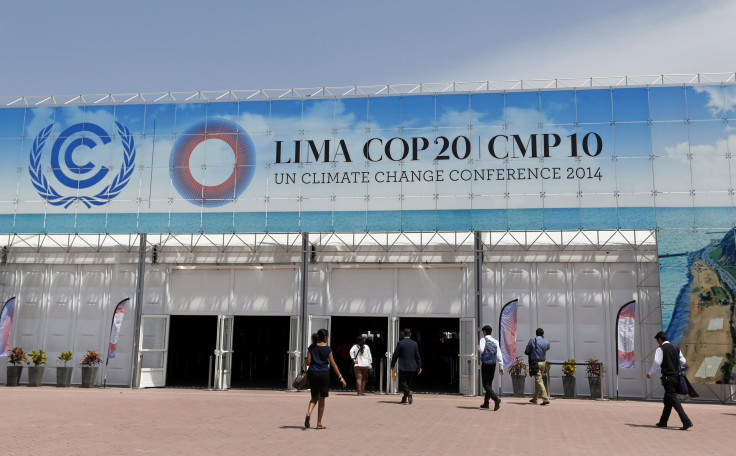UN Climate Summit: China Criticizes Australia For Refusing To Donate To Green Climate Fund

China on Thursday hit out at Australia for the latter's decision not to contribute to the United Nations’ Green Climate Fund (GCF) and said that the money provided by developed nations to help poorer countries cope with the effects of climate change is “far from adequate.” The Australian government had, on Thursday, announced that it would continue to support developing nations through its bilateral aid programs instead of donating to the GCF, according to media reports.
“It is not good news [about] Australia, if it is true that they refuse to provide any money to the GCF,” Su Wei, China’s lead negotiator at the ongoing U.N.-led talks in Peru, reportedly said. “It also has very important impacts in the negotiating process. It’s a trust-building process.”
China had, in November, signed a bilateral deal with the U.S., aimed at reducing its greenhouse gas emissions by 2030. Australia, which recently took the controversial step of abolishing its “carbon tax” targeting the worst polluters in the country, said on Thursday that it is already fulfilling its commitments of supporting developing countries through foreign aid programs, according to media reports.
“The Green Climate Fund is about supporting developing countries build resilience to climate change … from my experience, bilateral work is able to customize responses when we're working directly with another partner country,” Australia’s Foreign Minister Julie Bishop reportedly said.
Australia, along with India, Japan and Russia, has also refused to commit to emission cuts and caps on fossil fuel use -- a key focus at the ongoing talks in Lima.
Developed nations have, so far, contributed nearly $10 billion to the GCF, which was established in 2010 and aims to provide funds to assist developing nations mitigate the effects of anthropogenic climate change. While the GCF has set an ambitious target of mobilizing $100 billion a year in climate finance by 2020, so far only a fraction of it has been raised.
“There is still a large gap toward the 2020 targets of $100 billion a year,” Su reportedly said, adding that greenhouse gas emission targets announced by rich nations were also not enough to make a significant contribution toward the target of capping a rise in average global temperatures to 2 degrees Celsius (3.6 degrees Fahrenheit) above pre-industrial levels.
© Copyright IBTimes 2024. All rights reserved.






















